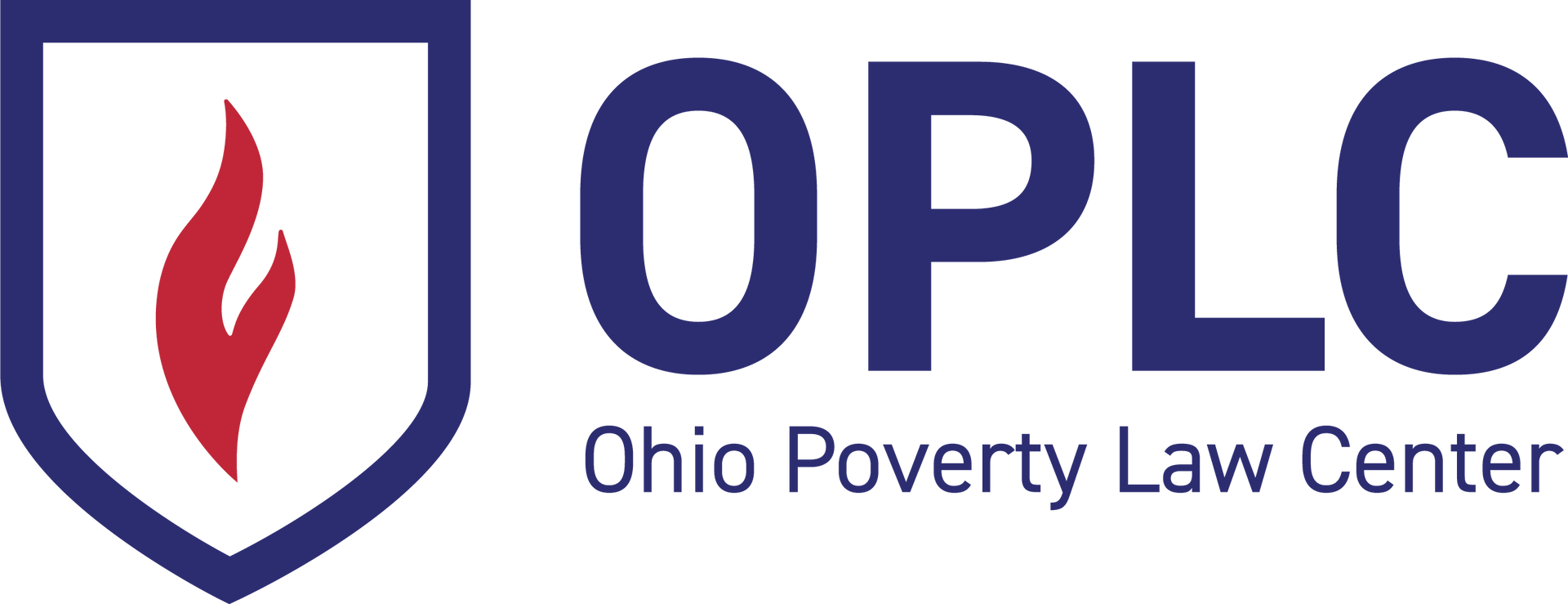JULY 2022 NEWSLETTER

OPLC Stands with Akron Community in Calling for Accountability in Killing of Jayland Walker
The Ohio Poverty Law Center stands with the Akron community in asking for full and fair investigations and accountability for the death of Jayland Walker. Black Lives Matter. In affirming our commitment to and for Black lives, OPLC stands ready to support and partner with all those committed to racial justice. We pledge to remain vigilant in our commitment to create change.
In support of the Akron community and the Walker family, OPLC Policy Advocate Tim Johnson (speaking in photo) joined the calls for accountability during Sunday’s Community Peace Rally following the release of the police camera footage.
Continued Strain on Ohio’s Foodbanks Could Be Helped by ARPA Investment
Right now, we are all feeling the sting of rising food prices and supply chain challenges at the grocery store. Costs for basic staples like milk and eggs are skyrocketing. Foodbanks are fighting the same challenges as inflation has increased costs and decreased charitable donations. Ohio’s foodbanks are struggling to meet current demand and need help now to keep food on their shelves. Later this year when the public health emergency ends, food stamp benefits will decrease for families, older adults, and students—putting additional strain on foodbanks and direct service providers.
Recently, foodbanks have announced scaling back services due to high costs and food shortages.
Ohio has $1.9 billion left in flexible state fiscal recovery funds from the American Rescue Plan Act (ARPA). We are asking Governor DeWine to use $50 million in ARPA funds to shore up the food supply at foodbanks now. Additionally, we urge Ohio’s leaders to help their constituents by investing additional ARPA funds in the foodbank distribution network, health care navigators, legal aid services, and direct service nonprofits to prepare for when the public health emergency ends.
The ARPA dollars are meant to help Ohioans and communities recover from the pandemic. In the short-term, our leaders need to use these funds to make sure Ohioans are fed, housed, and have access to health care.
Bill Permits Pregnant Minors to Consent to Their Prenatal or Pregnancy-Related Care
In Ohio, people under 18 who are pregnant and in labor cannot consent to their own health care. They can receive emergency services, but nothing considered to be elective. A pregnant teen cannot consent to prenatal care, an epidural, or a Cesarean section unless the delivery condition is considered a “medical emergency.” This unnecessarily risks the health of the mother and unborn child. Ohio is one of 13 states that has no explicit policy allowing a minor to consent to prenatal and pregnancy-related care.
There are many reasons teens can find themselves alone when they are pregnant. Unplanned teen pregnancy can cause a major disruption in any family, but this disruption is especially severe in low-income families where resources are already spread thin. Unfortunately, it is not uncommon for pregnant teenagers to become estranged from their family or left to care for themselves if the family is unsupportive of the pregnancy.
House Bill 355, introduced by Representatives Kristin Boggs (D-Columbus) and Paula Hicks-Hudson (D-Toledo) would allow a pregnant minor to consent to receiving health care for herself and her unborn child. “Health care,” as used in the bill, means only treatment or services intended to maintain the life or improve the health of either a pregnant minor or the unborn child she is carrying. HB 355 was introduced and referred to the Families, Aging, and Human Services Committee in June 2021, but has yet to be scheduled for a hearing. All expectant mothers should have access to health care and safe delivery options, regardless of their age.
Outreach Needed as SNAP Interim Reports Resume
Supplemental Nutrition Assistance Program (SNAP) interim reports are required for many households six months after an application or recertification. Program participants will be notified by mail if they need to complete a report. The interim report asks about changes to household income, employments, housing, and utility costs.
Interim reports were waived during the pandemic but are set to resume. SNAP recipients and caseworkers who are new to the program since the pandemic began may be unfamiliar with interim reports, so the need for outreach, education, and communication is high. Benefits could be at risk if the interim report is not returned.
Our partners have prepared a
flyer to help explain the process.
